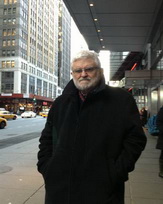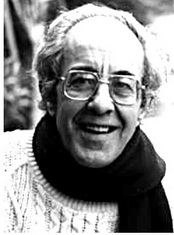
February 25, 2015
Chris McDonnell, UK
Ever
Tried
(Comments welcome here)
chris@mcdonnell83.freeserve.co.uk

|
|
February 25, 2015 Chris McDonnell, UK Ever
Tried (Comments welcome here) |
chris@mcdonnell83.freeserve.co.uk
|
There was an article in the Tablet last week entitled “Yours, absurdly”, a review of the recently published third volume of the letters of the Irish writer, Samuel Beckett. They cover the years 1957-65, written during the time of the Council. Given Beckett’s personal stance with regard to the Church. the Council is not a significant event in their detail.
“Ever tried.
Ever failed. No matter. Try again. Fail better.”
Those
words from Worstward Ho, published in 1983, have often been quoted since. I
found them an invaluable summary of the necessity of continual effort by both
teacher and taught in the classroom. One of Bob Dylan’s lyrics from the 60s
tells of success and failure.
“My
love she speaks softly she knows there’s no success like failure and that
failure’s no success at all” with
a slightly different conclusion.
Beckett, one of the great Irish writers of the 20th Century, alongside Yeats, Joyce and Heaney, left us work that marked literature in a special and peculiar way, spoke of our human condition and forced us to question ourselves with stark and honest realism.
“Jesus
doesn’t allow us to solve our own problems through blame. The challenge he
poses is to discern in the midst of our darkness the light of God…… How
radically new my life would be if I were willing to move beyond blaming to
proclaiming the works of God in our midst”
A succinct and purposeful comment from his journal “Sabbatical Journey”

So,
with Lent a week old, it is a good question to ask. What is and what should be
the Christian’s response to the Gospel? How far is our Christian living
reflective of the Gospel narrative and the letters of the apostles to the